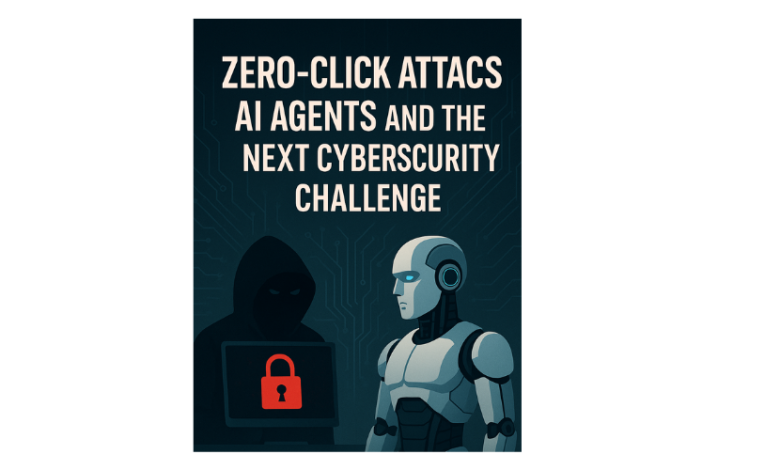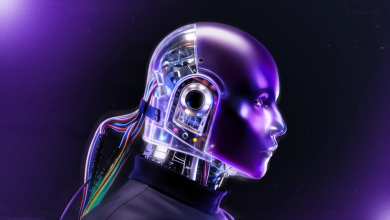
Zero-Click Cyberattacks
Imagine a world where your trusted voice assistants, the ones you use to make coffee, organize meetings, analyze data, even ones you rely on to help secure your own systems, suddenly get compromised without you even clicking on a link or installing anything new.
No warning. No action required on your part. An external attacker could have complete, silent control of these systems, and it would take days or weeks before anything feels “off.”
This isn’t some abstract security fear or worst-case scenario. Zero-click attacks are a fast-growing class of cyberattacks that target the silent background operations of devices, services, and applications in order to open silent doorways for hackers to walk right through without any user interaction at all.
Zero-Click Attack is Accelerated by Autonomous AI Agents
Zero-click attacks are on the rise and are particularly worrisome because of the way they work: by using deeply-hidden exploits that allow hackers to remotely access user devices or backend systems with little or no interaction from the user, making them far more effective than traditional attacks and also much more difficult to detect and defend against.
These stealthy attacks are particularly dangerous because they rely on finding unpatched vulnerabilities and silent ingress points before you or your organization knows about them, which means that by the time it’s too late you already have a hacker sitting invisibly in the cloud environment with full access to all of your resources, people, and data.
Adding fuel to the fire is the rise of autonomous AI agents in cloud environments. Autonomous AI agents are self-contained, software-driven processes that function as independent operating systems with their own internal decision-making logic and connectivity to external resources (including other agents).
AI agents are being rapidly adopted as the foundational building blocks of digital transformation strategies, automated workflows in cloud-native software development, and self-service business process automation. For business leaders and security teams alike, zero-click attacks and the AI agents that run many business processes in cloud-native ecosystems are poised to be the next major cybersecurity challenge.
AI Agents: The New Security Nightmare
The average user is not very good at “thinking before they click,” but that doesn’t stop them from clicking through links or opening attachments without thinking twice, and even the savviest employee with extensive security training can make that mistake if they don’t understand what’s at stake.
So how do zero-click attacks work? Well, instead of relying on social engineering tricks like phishing emails or fake downloads, hackers rely on exploiting silent ingress points in messaging apps, communication protocols, or operating system background services that have no user interaction at all required by default.
For example: silently accessing the “camera” API permissions, without user permission when a “camera on” switch was added to the system itself without notifying users or system administrators. Combine that with autonomous AI agents in the cloud, where users have less visibility into back-end security controls than ever before.
The reasons for the rise in zero-click attacks are multifaceted, but there are three factors in particular that I think will make zero-click attacks and AI agents the next major cybersecurity challenge for companies that have embraced a cloud-first approach to IT:
1. Zero-click attacks work silently in the background without requiring user action, so they are much more effective than traditional attacks and also much harder to detect and defend against.
2. Autonomous AI agents are being rapidly adopted as the foundational building blocks of digital transformation strategies, automated workflows in cloud-native software development, and self-service business process automation. For business leaders and security teams alike, zero-click attacks and the AI agents that run many business processes in cloud-native ecosystems are poised to be the next major cybersecurity challenge.
3. AI agents are being rapidly adopted as the foundational building blocks of digital transformation strategies, automated workflows in cloud-native software development, and self-service business process automation. For business leaders and security teams alike, zero-click attacks and the AI agents that run many business processes in cloud-native ecosystems are poised to be the next major cybersecurity challenge.
Conclusion
Zero-click exploits against an AI agent can undermine confidence in automation, slow down digital transformation initiatives, and create fear about adopting new technologies.
In an increasingly digital world where businesses are forced to embrace innovation or risk falling behind, trust is not a luxury item. The next cybersecurity challenge is not only about fixing vulnerabilities in systems or preventing data breaches, it is about ensuring that people can continue to trust in tools that enable them do their jobs.
The next cybersecurity challenge is already here, and it is unfolding right now under our noses while we remain blissfully unaware. The real question is whether we will rise to meet it before it becomes tomorrow’s crisis headline.



